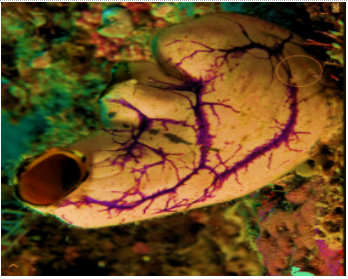
Assertion: Acraniata is a group of organisms that do not have distinct cranium.
Reason: It includes small marine forms without a head.
(a)Both Assertion and Reason are correct and Reason is the correct explanation for Assertion.
(b)Both Assertion and Reason are correct but Reason is not the correct explanation for Assertion.
(c)The assertion is correct but Reason is incorrect.
(d)The assertion is incorrect but the Reason is correct.
Answer
598.2k+ views
Hint: Sea squirts (Urochordata) is an example of an organism which lacks cranium. The chordate characteristics will be lost in the adult animal. They attach themselves to a hard surface, thereby they will lose their tail, the nervous system, and these animals cannot move.
Complete answer:
Acraniata is a group of organisms that have no distinct cranium, that is they have no true skull. They are small, headless, marine forms. It includes urochordates, cephalochordates, and hemichordates. These are marine, cranium-free animals, without jaws, vertebral column, and paired appendages. There is Notochord and they are less developed than craniates (organisms having a cranium).
-Retrogressive metamorphosis is a condition that is a characteristic feature observed in Urochordata. In these organisms, the notochord will be present in the larval stage and will degenerate in the adult organisms. Thus, the non-chordate adult organism cannot move. This condition is called retrogressive metamorphosis. The advanced characteristics of the animal present in the larval stage will be lost in the adult organism. The below image is Urochordata.

So, the correct answer is ‘Both Assertion and Reason are correct and Reason is the correct explanation for Assertion’.
Note: Acrania in the human fetus is a condition in which the flat bone present in the cranial vault will be partially or completely absent. Acrania in humans occurs because of a genetic disorder and it can be detected via ultrasound during pregnancy.
Complete answer:
Acraniata is a group of organisms that have no distinct cranium, that is they have no true skull. They are small, headless, marine forms. It includes urochordates, cephalochordates, and hemichordates. These are marine, cranium-free animals, without jaws, vertebral column, and paired appendages. There is Notochord and they are less developed than craniates (organisms having a cranium).
-Retrogressive metamorphosis is a condition that is a characteristic feature observed in Urochordata. In these organisms, the notochord will be present in the larval stage and will degenerate in the adult organisms. Thus, the non-chordate adult organism cannot move. This condition is called retrogressive metamorphosis. The advanced characteristics of the animal present in the larval stage will be lost in the adult organism. The below image is Urochordata.

So, the correct answer is ‘Both Assertion and Reason are correct and Reason is the correct explanation for Assertion’.
Note: Acrania in the human fetus is a condition in which the flat bone present in the cranial vault will be partially or completely absent. Acrania in humans occurs because of a genetic disorder and it can be detected via ultrasound during pregnancy.
Recently Updated Pages
Master Class 11 Business Studies: Engaging Questions & Answers for Success

Master Class 11 Computer Science: Engaging Questions & Answers for Success

Master Class 11 Economics: Engaging Questions & Answers for Success

Master Class 11 Social Science: Engaging Questions & Answers for Success

Master Class 11 English: Engaging Questions & Answers for Success

Master Class 11 Chemistry: Engaging Questions & Answers for Success

Trending doubts
Draw a diagram of nephron and explain its structur class 11 biology CBSE

Explain zero factorial class 11 maths CBSE

Chemical formula of Bleaching powder is A Ca2OCl2 B class 11 chemistry CBSE

One Metric ton is equal to kg A 10000 B 1000 C 100 class 11 physics CBSE

A solution of a substance X is used for white washing class 11 chemistry CBSE

Differentiate between calcination and roasting class 11 chemistry CBSE




